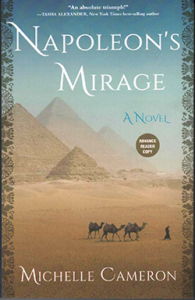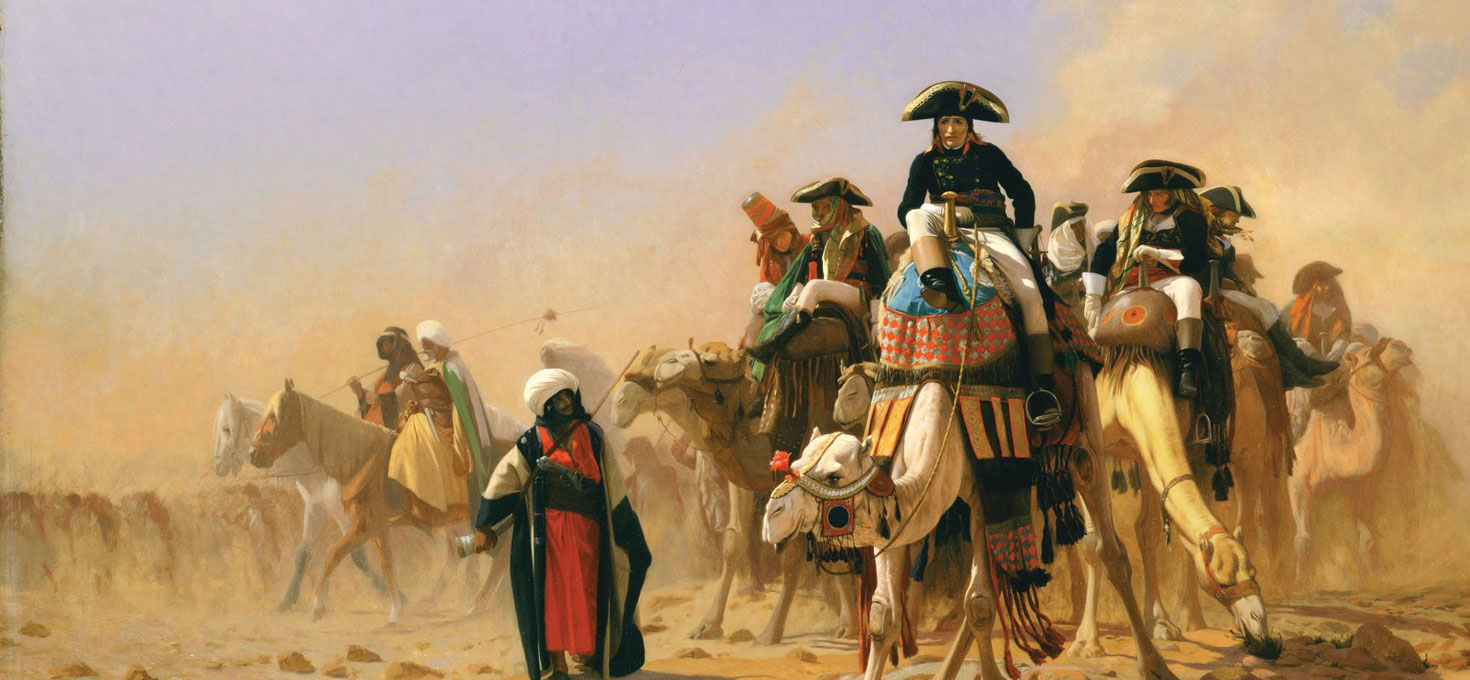Napoleon’s Mirage by Michelle Cameron; Berkeley, California: She Writes Press; © 2024; ISBN 9781647-426200; 256 pages; $17.99; publication date: November 12, 2024.
 This Jewish love story is woven into an account of Napoleon’s unsuccessful war in Egypt and Ottoman Palestine in the final years of the 18th century. Descriptions of the battles and the wanton cruelty of both sides in the war pitting mainly French Christian troops against indigenous and Turkish Muslim defenders remind current-day readers of the murderous barbarism attendant to Hamas’ invasion of southern Israel on October 7, 2023.
This Jewish love story is woven into an account of Napoleon’s unsuccessful war in Egypt and Ottoman Palestine in the final years of the 18th century. Descriptions of the battles and the wanton cruelty of both sides in the war pitting mainly French Christian troops against indigenous and Turkish Muslim defenders remind current-day readers of the murderous barbarism attendant to Hamas’ invasion of southern Israel on October 7, 2023.
The novel places three Jews in the wartime drama: Daniel, a lieutenant commanding a French artillery company; Ethan, a writer and linguist, fluent in Arabic, whom Napoleon has entrusted with an important message for the Jews of Eretz Israel; and Mirelle, cousin of Ethan and an inheritor of a shop in Ancona, Italy, that produces beautiful hand-illustrated ketubot, Jewish wedding contracts.
A previous book by Cameron, Beyond the Ghetto Gates, told of Napoleon’s troops freeing the Jews of Italy and giving them citizenship, earning their admiration and loyalty. Within that story, Daniel’s best friend and fellow French soldier Christophe, a lapsed Catholic, seduced Mirelle, whom Daniel loved and idealistically forgave them both. The Jews of Ancona, however, were not so forgiving, shunning and shaming Mirelle and making her life a living hell while Christophe, Ethan, and her true love Daniel were away serving in the Napoleonic Wars.
Chapters of this book veer back and forth between the progress of Napoleon’s Army, to which author Cameron hews closely to known history, and Mirelle’s desperate situation back in Ancona, which is the product of the author’s imagination. Eventually, the two threads of this novel are tied together but not before a lot of bloodshed.
An element of the Napoleonic portion of the story with which historians may take issue is a subplot in which the French “citizen general” authored a proclamation suggesting that if Jews in Palestine helped him defeat the Ottomans, then he would recognize Eretz Israel as an independent Jewish nation. That was the message that the fictional Ethan took to the leadership of the small Jewish community in Jerusalem. While historians have argued whether this was Napoleon’s possible intent, so far it has been unproven, and Cameron’s account is fictional.
However much Daniel admired Napoleon for his kindly support for Jewish aspirations, his brutality toward enemy troops and callousness toward the wounded among his own troops caused Daniel to view the French leader with disgust.
Cameron’s colorful descriptions of places the French troops visited, suspense over Daniel’s and Mirelle’s unfulfilled love for each other, and wonder over what roles Daniel, Christophe, and Ethan will play in the unfolding story make this novel one that readers will hungrily await the denouement.
Republished from San Diego Jewish World


























